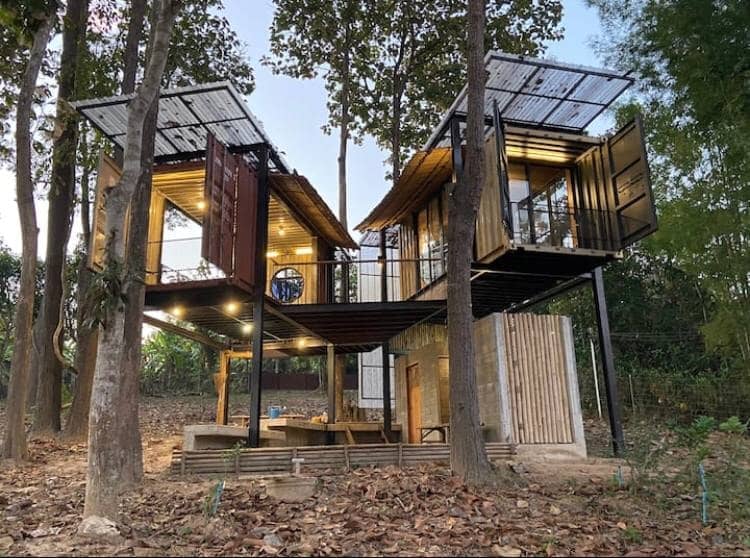Buying Property In The Dominican Republic: 5 Pitfalls To Avoid

When buying a property in the Dominican Republic, there are many aspects that you should take into account to avoid unnecessary risks.
If you intend to acquire any real estate property, the ideal is that you get advice from a lawyer of your choice, it is very important to get advice from a professional who will accompany you throughout the process until the property in question is transferred to your name.
However, in addition to the above, it is ideal that you have knowledge of everything you need to avoid risks when buying an apartment, house, plot, villa, farm, commercial property, or any other real estate property you are interested in.
So that you run the least possible risk before spending your money.
Here are 5 pitfalls to avoid when trying to buy real estate in the Dominican Republic.
Contents
1- Purchase of unallocated land
This is the most basic thing the moment of showing interest when buying a property.
You should ask the seller to provide you with a copy of the ownership document; ask him in all confidence if the property is delimited or not.
If it is, the title you have should be blue in color (final title); if it is not, the title will be pink ( letter of constancy or annotated constancy).
If they bring you a large title (such as 11 x 17, green color with a large shield in the central upper part), do not panic, although this document is no longer in use, it is still valid.
This document, when deposited at the Registry of Titles, will be exchanged for one of the modern ones (remember that the copy will usually be taken in black and white).
Once you have the copy in your hands to identify the ownership of the property, proceed with your transaction.
2- Failure to verify the legal status of the property
The legal status of a property is to it what an x-ray is to the human body.
It is a photograph of how the property is at that precise moment.
If it has an opposition, mortgage, seizure, “warning note”, unpaid seller’s privilege or any other condition that affects the immediate disposition of the property.
These annotations are placed in the offices of the Registry of Titles, in a section called “Complementary Registry”.
They can only be appreciated in certification of the legal status of that property, issued by the Registry of Titles since the owner’s certificate does not contain any annotation.
This certification has a cost of RD$1,000.00 (18$ USD) to be paid at the Banco de Reservas; with this receipt (plus a stamp of RD$50.00 (1$ USD), a receipt of RD$10.00 to be purchased at the DGII), a copy of the title and a copy of the applicant’s identity card.
You can go to the Title Registry office where the property is located to request it or you can do it virtually through the Real Estate Jurisdiction platform (it is at the seller’s expense).
This whole process can be done by the lawyer, who has knowledge of the sites, but it is good that you know the procedure.
3-No IPI certification of the property
The IPI (real estate property tax) certification is a document issued by the Internal Revenue Service (DGII) stating whether or not the property has tax liabilities.
If it is exempt from the payment of this tax, the certification must say so; if it has a debt pending to be paid, it will also say so.
If the appraised value (by the DGII) of the property is below or equal to RD$8,138,353.26 (150,700$ USD), such property will be exempt from IPI; if its price is above, it will pay annually 1% of the resulting value between RD$8,138,353.26 and the actual price appraised by the DGII.
Once you have in your possession both the certification of the legal status and the IPI, you are in a position to close business with the seller.
The fact that the property has some IPI or mortgage debt does not mean in any way that you are not going to close your business; these tax charges or encumbrances will indicate the circumstances and conditions under which the transaction must be closed.
The seller may not have the economic resources available to honor these commitments.
In the case of IPI debt, it is as easy as deducting it from the price and you will be in charge of paying it; but if you have any mortgage or opposition, it becomes more complex, since you would have to count on the participation of the creditor or whoever has filed the opposition, in order to cancel them.
4-Not verifying the marital status of the person from whom you are going to buy the property
Something that must be taken into account is the marital status of the seller; it is not enough that the identification card and the title say that the seller is single.
It is necessary to go to the Central Electoral Board to find out if he is indeed single; it is also necessary to find out if the JCE tells us that the seller is single.
That he does not have a partner with whom he has been living in a common-law relationship for more than 5 years (such as his wife).
In case he is married or has “his wife” for many years, it is also necessary to call him to sign jointly with him (or him jointly with her in case she is a seller) the act of sale.
5- Not verifying the growth or development of the project
If you are going to buy a land or house in a closed project, in case the project appears to be of good future growth and is not developed.
You should investigate how long the project has been in operation, how many constructions have been built, and how much time has passed.
For these, there are different mechanisms such as investigating if they have a website, how old the website is, or talking directly with neighbors and other owners in the project.








Good information thank you for sharing